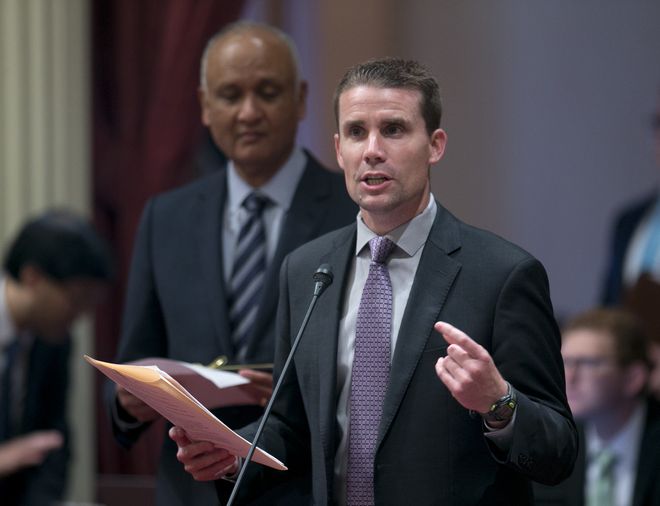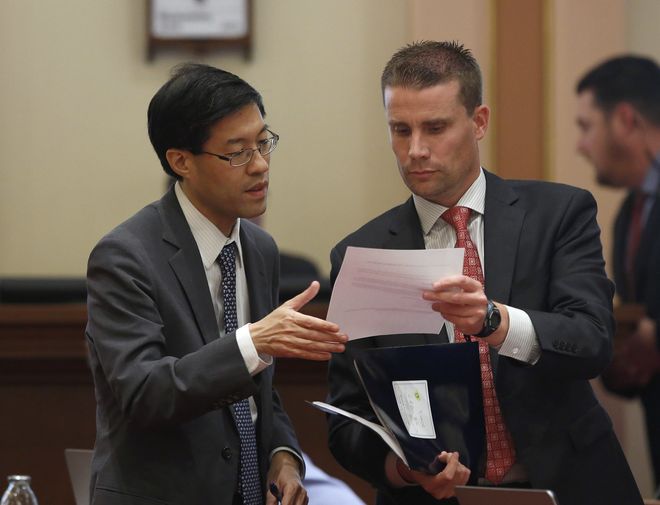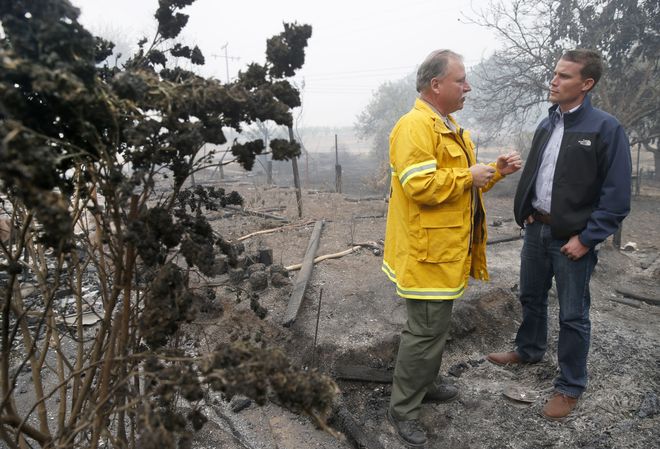Consumers seeking legal cannabis in California come New Year will be in for a bumpy ride as the state “builds the airplane as it flies,” said state Sen. Mark McGuire in a briefing to the San Francisco Chamber of Commerce’s legalization working group Oct. 18.
It’s not clear where adults 21 and older will be able to legally buy marijuana when such sales can begin on New Year’s Day, 2018, he said. Maybe in select cities working to license it — like Berkeley, Santa Ana, San Diego, or in Humboldt County, reports indicate.
“I hope it’s on the North Coast,” McGuire said.
That’s just one of the many bumps consumers will face as California seeks to fully regulate for the first time its massive, estimated $7 billion in-state cannabis economy. The total illicit and licit pot industry might total $23 billion in California.
Representing the cannabis-rich North Coast of California, implementation expert Sen. McGuire told the gathering of pot shop owners, lawyers, Chamber staff and members that implementing statewide commercial sales and licensing is happening on an “absolutely ridiculously short timeframe.”
The idea of a fully functioning, seed-to-sale, licensed cannabis industry on Jan. 1 in California is “not going to happen,” he said.
Cannabis as an industry rivals the $6 billion dairy industry and the $5 billion wine sector. All California agriculture totals $42 billion a year in revenue, he said.
“This is going to be the largest transition of a major industry in modern history.”
“You take a look at how important cannabis is for our counties on the North Coast — it’s one of our main economic drivers.”
TAX AND LICENSURE TURBULENCE
California has had medical pot for 21 years, but only moved to regulate it in October 2015. In November 2016, California voters approved of legalization Proposition 64, which immediately made legal possessing and gifting up to an ounce of pot by adults 21 and older, as well as holding seven grams of hash and growing six plants.
On Jan. 1, the state must begin issuing recreational licenses to stores, farms, and other pot businesses who hold a local license as well.
McGuire said the top regulatory challenges are taxes and licensure. The state’s pot tax system goes live in December. Of the tens of thousands of would-be licensed operators “maybe a few thousand will be compliant in taxes [come Jan. 1],” said McGuire.
California’s licensing system does not integrate into over 400 cities and counties in the state and there’s 18 types of licenses people can apply for. McGuire predicted that on Jan. 1, “maybe one percent will be in the system if we’re lucky.”
The state has given regulators a $120 million budget to staff up the Bureau of Cannabis Control and multiple other agencies handling pot.
McGuire forecasts a decade-long effort to bring the pot industry above-ground, with “60 to 70 percent” of the industry licensed in the first five years. “The vast majority of growers in California simply want to follow the law,” he said.
Every state licensee will also need a local license, but cities and counties have generally not created such licenses yet.
More than 90 percent of California cities have banned adult-use pot sales permanently or temporarily, including San Francisco and Los Angeles. It could take two to three years for cities and counties to get their act together, he said.
Some cities are waiting on more direction from the state, but McGuire said the general direction is clear. “Cities should feel safe to be able to move [forward on licensing],” he said.
He predicted cities will act “when cities start seeing the tax revenue in neighboring cities.”
“This is going to be the next big area of growth,” he said. “This is going to become like wine-tasting.”
“Cities can deny it, but I am staggered by amount of economic activity we have around cannabis,” he said. “The longer we wait, the more challenges we’ll have in our communities and our environment will be impacted worse.”
BANKING HEADWINDS
There’s been little progress on the biggest headwind: the federal ban on pot banking. McGuire said some banks and credit unions in California look the other way and bank canna-businesses. The state could also set up its own state bank.
But “there is no relief in sight,” he said. “Just workarounds, not solutions.”
“No banking is the most dangerous part,” McGuire said. “Right now we have famers driving hundreds of miles to Sacramento or San Francisco with tens of thousands or hundreds of thousands of dollars in taxes in their pick-up that they’re depositing with the Board of Equalization.”
McGuire said the state will open up pot tax and licensing branches in Humboldt, Mendocino or Trinity County in the New Year.
FEDERAL FACTOR
Federal intervention in state-legal cannabis is also on Sen. McGuire’s mind, he said.
Attorney General Jeff Session is “one of the biggest concerns we have,” he said. “There’s the potential for cannabis policy to go back to the 1950s.”
The federal government could seek to interfere in state’s cannabis control regime, like demanding license and tax information, he said.
“We may see this tested,” he said. “The state is going to need defend its law in court.
“How do we build the trust of those that want to become licensed if they know that we’re immediately going to turn their information over to the federal government?”
FIRE DELAYS
McGuire’s talk also came amid the state’s deadliest wildfires, which killed at least 42 people, burned over 5,000 homes, and torched more than 330 square-miles. The cannabis industry took a direct hit in epicenters Sonoma and Mendocino county.
McGuire said federal relief for cannabis businesses won’t happen, but the idea of state relief is something “I would be more than willing to explore on the state level.”



